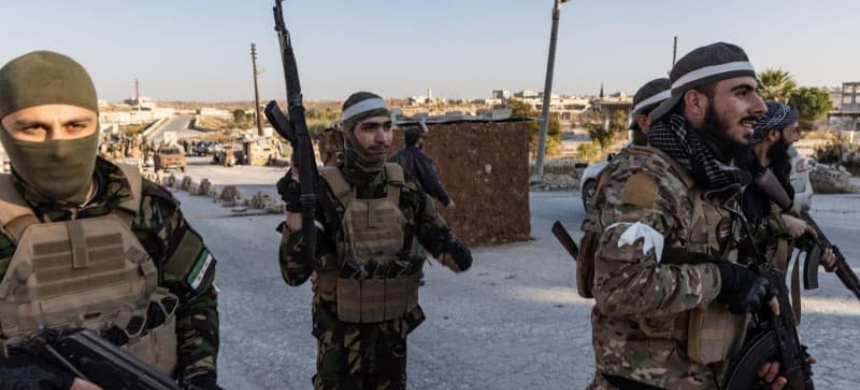Rebel Forces Advance Toward Hama Amid Escalating Conflict in Northwestern Syria
Rebel forces in northwestern Syria, spearheaded by Hayat Tahrir al-Sham (HTS), have made significant territorial gains, advancing towards the strategic city of Hama following their capture of Aleppo in a swift offensive last week. This development marks a major escalation in the Syrian conflict, reigniting fears of widespread violence and a humanitarian crisis.
Key Rebel Gains and Government Counterattacks
HTS, a prominent group with roots in the al-Nusra Front, has seized critical locations, including the military academy and Khanasir, a vital supply route. The rapid territorial gains have triggered a strong counteroffensive by Syrian government forces, bolstered by Russian airstrikes targeting opposition-controlled areas such as Idlib and Aleppo.
According to reports, Syrian and Russian warplanes have intensified aerial bombardments, focusing on weapons depots and rebel strongholds. However, these strikes have caused significant civilian casualties. The Syrian Observatory for Human Rights reported that Russian airstrikes on Sunday targeted displacement camps in northern Syria, killing at least eight civilians and injuring 50 others.
Humanitarian Concerns Amid Renewed Violence
The ongoing violence has exacerbated Syria’s humanitarian crisis. Thousands of civilians have fled their homes, joining millions already displaced by the conflict. The White Helmets, Syria’s volunteer rescue organization, reported that Sunday’s airstrikes alone claimed the lives of 25 people, including 10 children.
Human rights activist Razan Saffour highlighted the vulnerability of rebel-held territories to aerial bombardments, comparing the current offensive to earlier campaigns marked by indiscriminate strikes.
The United Nations has called for an immediate political resolution, with special envoy Geir Pedersen warning of severe risks to regional and international stability. “The latest developments have serious implications for peace and security,” Pedersen said.
Read More: Hamas Accepts Gaza Ceasefire Proposition
Assad’s Response and Regional Dynamics
Syrian President Bashar al-Assad, in his first public remarks since the offensive began, vowed to defend the nation’s territorial integrity, labeling the rebels as “terrorists.” Assad pledged to resist the advances and protect Syria’s sovereignty.
Meanwhile, Syria’s allies, including Iran, have reaffirmed their support. Iranian Foreign Minister Abbas Araghchi met with Assad in Damascus on Sunday, emphasizing Tehran’s commitment to the regime. Jordan and the UAE have also expressed solidarity with Syria.
Strategic and Regional Implications
Rebel fighters have maintained positions on the outskirts of Hama, engaging in fierce clashes with government forces. While some towns have changed hands multiple times, the battle lines remain fluid. The state news agency SANA reported that government reinforcements, including heavy equipment and rocket launchers, have been deployed to defend Hama and its critical infrastructure.
This offensive is the most significant shift in the Syrian frontlines since 2020, challenging the relative stability achieved in recent years. The rebel gains have raised questions about the conflict’s trajectory and the potential for renewed international efforts to mediate peace.
Mixed Reactions in Aleppo
Residents of Aleppo, which had been under government control, expressed mixed feelings about the rebel advance. While many fear further destruction, some view the offensive as a possible turning point in the protracted war.
As the conflict escalates, the international community watches closely, weighing the potential for broader regional implications and the urgent need for a resolution to Syria’s long-standing turmoil.











